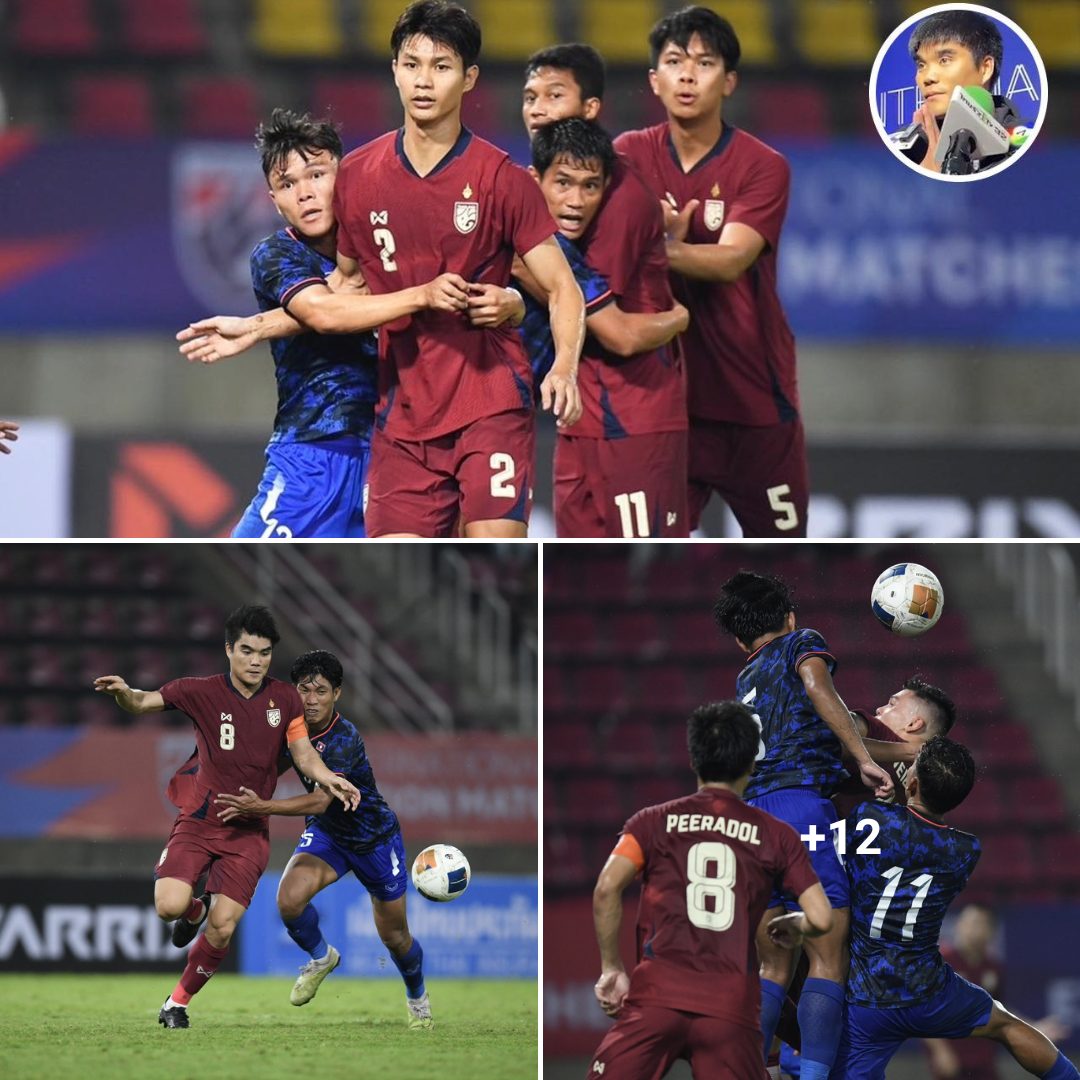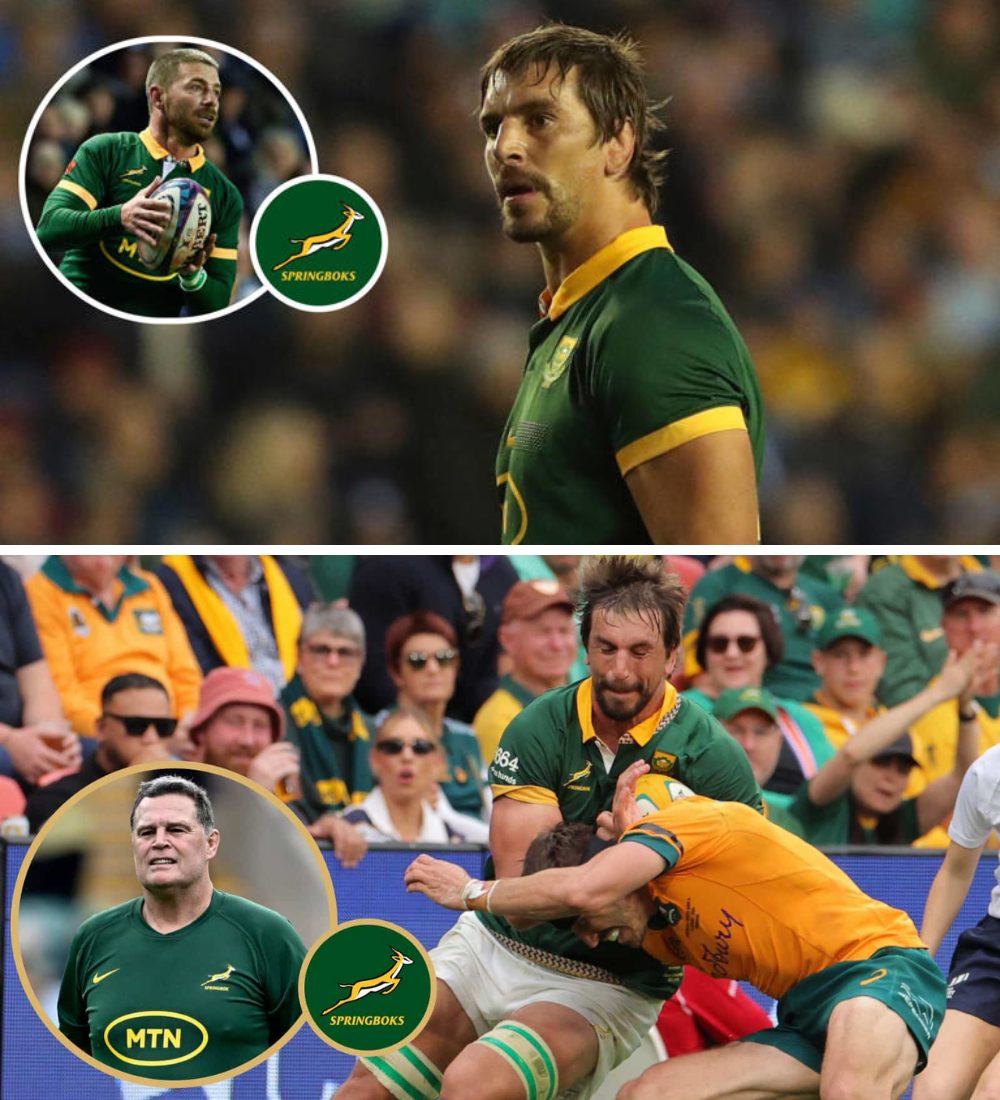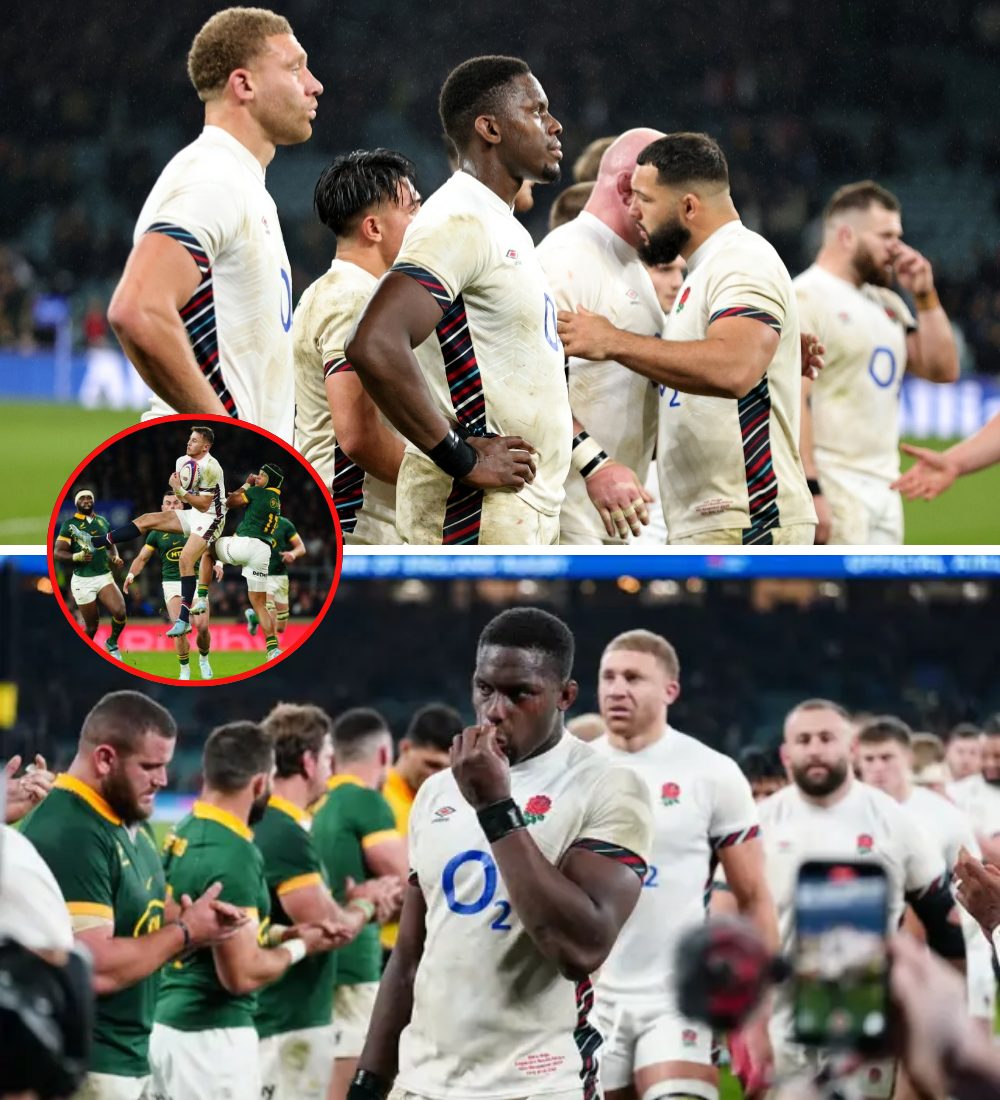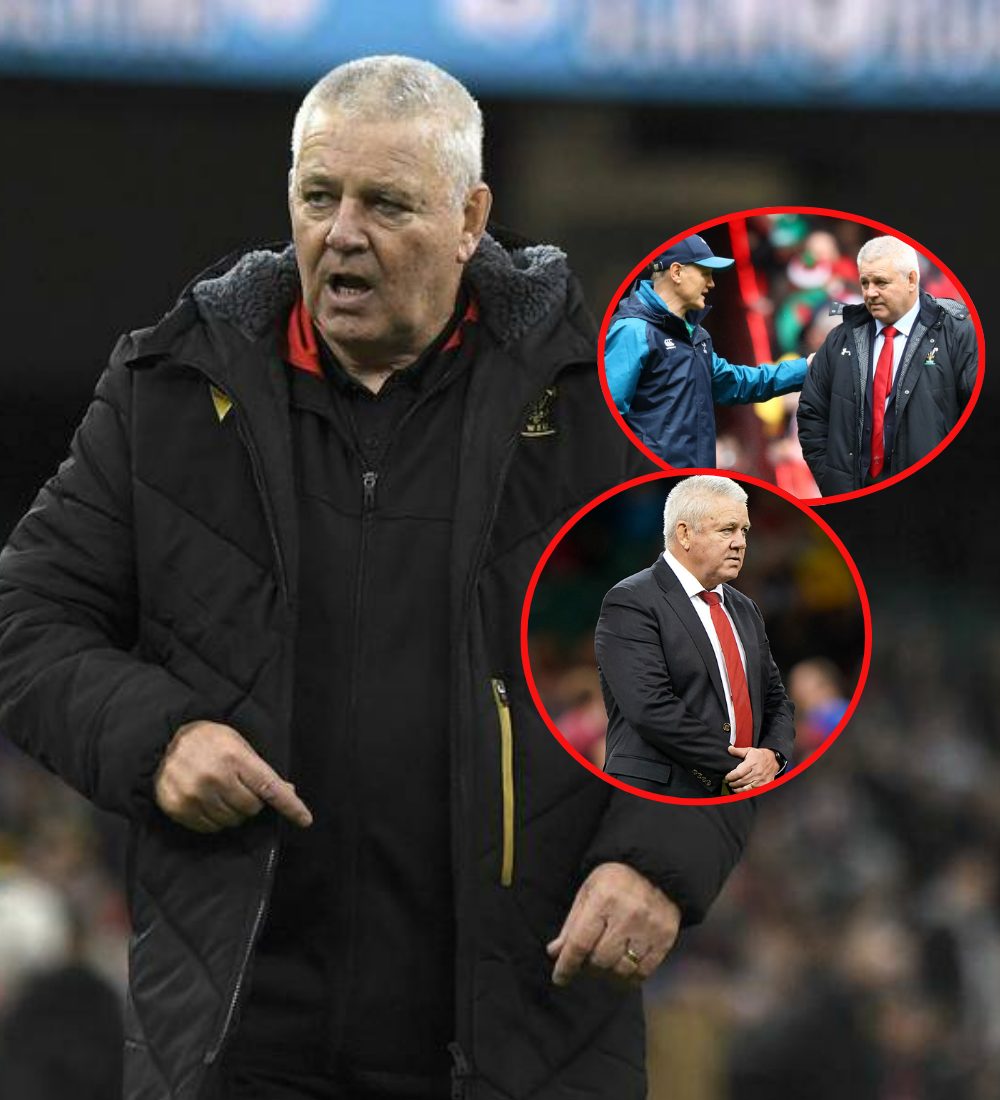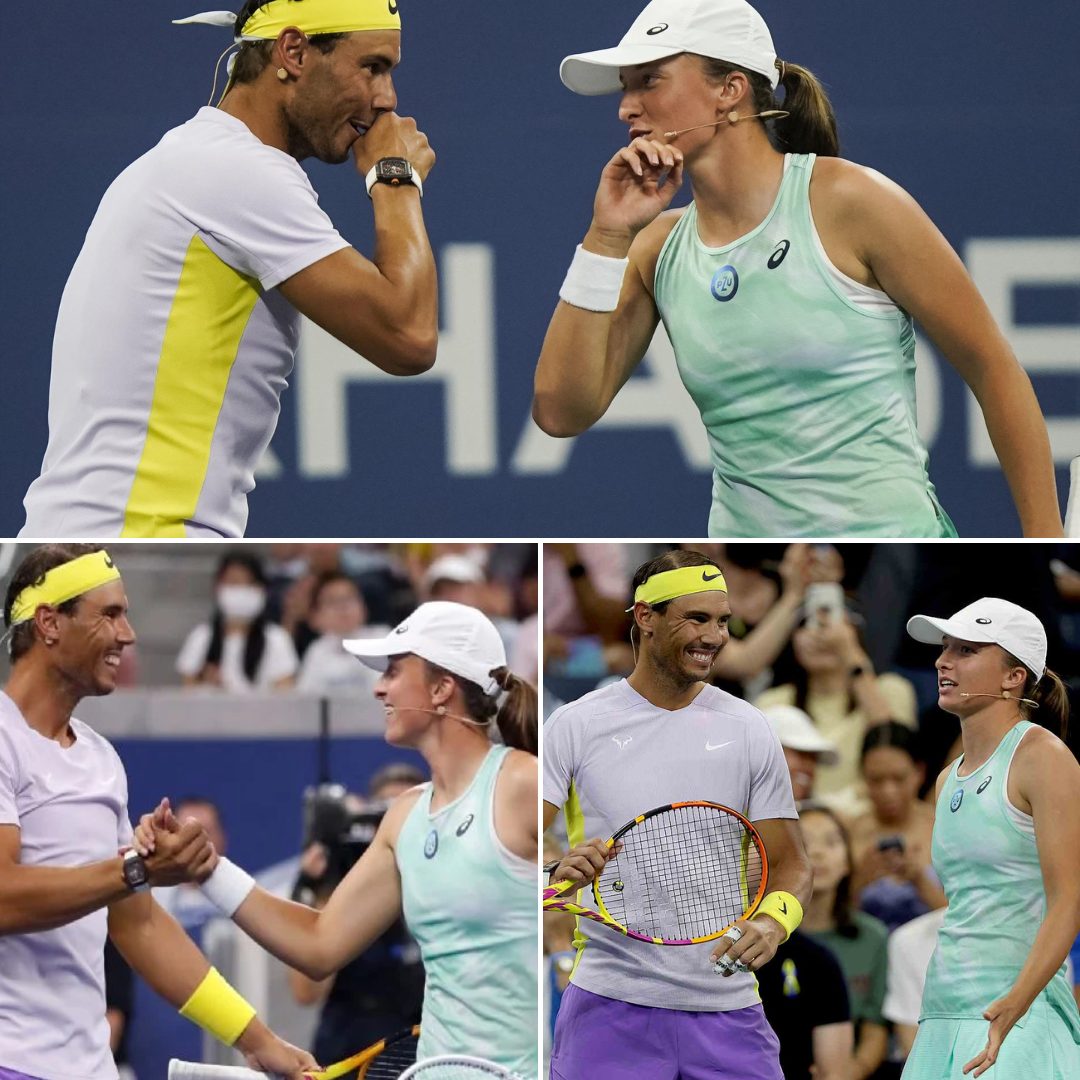There’s an old saying that 420 days is a long time in rugby, but that awful night in Lyon last year, when Eddie Jones’ Wallabies meekly succumbed to Wales by 40-6, really does seem like a lifetime ago.
It’s not just because of the eight tries scored in Cardiff or the comprehensive 52-20 score-line. Rather, what dominates is the overriding sense of how normal it all feels. That this is a Wallabies side playing how they expect to play.
Perhaps commentator Justin Harrison’s “amazing cauldron of performance” oversold the occasion just a touch, but the Wallabies’ start was wholly impressive. Recycling quickly, playing wide and with pace off a confident Noah Lolesio, the home side had no answers, with the score blowing out to 19-0 after just 22 minutes.
But as territory started to even out a little, and with the Wallabies scrum surprisingly askew, Wales edged their way back into things, so much so that going into the break 19-13 down must have felt like a major victory.
Not so. It was as if both sides didn’t notice the absence of Samu Kerevi, red carded for head contact in a tackle. Wales became more bereft of ideas, their lineout became a shambles, and once the Wallabies realised the challenge they expected wasn’t coming, they relaxed and enjoyed themselves.

It’s always a good sign when tries are being scored all over the park – a hat-trick each to the hooker and the fullback, a runaway try to big lock Nick Frost, and Len Ikitau re-living some fun, touch-rugby stepping moves from when he was a kid.
If there’s a concern about the Wallabies going off the boil in the second quarter, credit must also be given for how that was addressed at half-time. Tougher tests await this side over the next fortnight, and chatter about a potential grand slam feels premature, but for now, Wallabies fans can feel delighted that their side is back in the game as a competitive Test nation.
Considering where things were 420 days ago, whatever happens in Edinburgh and Dublin, that’s an impressive achievement.
Less impressive was the handling of a first-half incident where referee James Doleman stopped play to attend to what he described as a “clearly stunned” James Botham, who, remarkably, was allowed to play on without being subjected to an HIA.
World Rugby can give itself as many self-congratulatory pats on the back as it likes for being world leaders in the management of concussion, but week after week, breakdowns in process and action like this one, point to a reality that is far different.
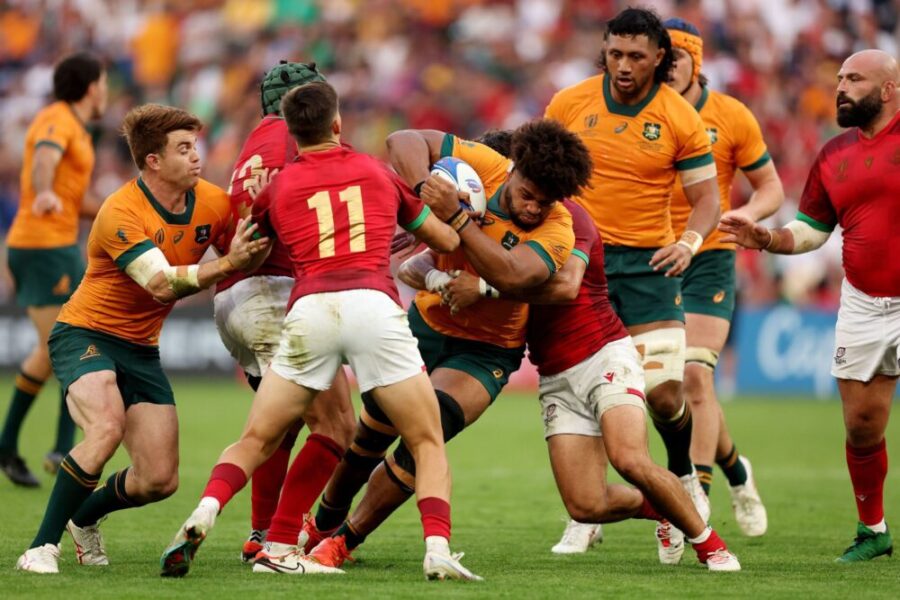
At the Stade de France, the All Blacks did a lot right, but came up short against France, 30-29. Both sides suffered early setbacks; Samipeni Finau lasting just the first play of the match before being concussed, and French tighthead Georges-Henri Colombe asked to come on and go 71 minutes.
Both situations provided a window into the outcome. The loose forward trio many New Zealand fans wanted to see will have to wait for another day. Replacement Peter Lakai impressed, scoring with his first carry in Test rugby, but as the match wore on, and the bigger French pack adjusted to the pace of the game, New Zealand missed the presence of a bigger body at number six.
Colombe – admittedly looking unlikely to relish playing long minutes – did just that, and in the process put paid to the ridiculous insistence by the New Zealand commentary team that all the All Blacks had to do to win was play at high pace. That perceived conditioning edge might have been a real factor a decade ago, but to succeed in the top echelon of rugby nations nowadays, sides must be equally comfortable in a rapid-fire shoot-out and hand-to-hand in the trenches, and be able to interchange methods as needed.
New Zealand’s 17-10 half-time lead was well-deserved, but the danger signs were already apparent. A final opportunity inside the attacking 22 was repelled, France’s enthusiasm growing with each dominant tackle, until Beauden Barrett was forced into an unlikely 40m drop goal attempt.

Rieko Ioane of New Zealand leads the Haka prior to kick-off ahead of the Autumn Nations Series 2024 match between France and New Zealand at the Stade de France on November 16, 2024 in Paris, France. (Photo by Franco Arland/Getty Images)
France entered the sheds in a positive frame of mind and sure enough, it took only four minutes after the break for them to get back on terms, and just another seven minutes to establish what would be a match-winning seven-point lead.
Predictably, reservations about New Zealand’s lack of bench impact resurfaced, but aside from questioning the rationale behind the substitution of the excellent Cam Roigard, this match wasn’t lost by the bench, but in the middle section; where France was allowed, or was able of their own accord, to find a foothold, before finding their attacking rhythm.
All of this left flyhalf Matthieu Jalibert as the only French loser on the day; Jalibert having ‘declined an invitation’ to take his place on the substitute’s bench. With this unconventional protest action having backfired we await with interest, progress reports on how coach Fabien Galthie responds to Jalibert’s hunger strike.
Meanwhile, rugby’s futile quest for officiating perfection was exposed in this match for what it is – fools gold – with no fewer than five match officials still not enough to ensure an absence of contentious calls.
It’s hard to imagine anybody believing that refereeing a match twice – the on-field referee in real time, and two TMOs on video delay – would somehow be a good idea, but here we are.
Do we get better outcomes as a result of having four people in the referee’s ear, feeding him information? With all these officials on the payroll, why are we surprised if they go searching for something to do?

In the first half, an All Black backline move saw the ball go astray, with referee Nika Amashukeli ruling on the run it had gone backwards and not to hand. Seconds later, he blew up play, having been told in his earpiece to go back for a knock on which a replay confirmed did not actually occur.
How did we get to the point of absolute madness where a referee making a perfectly good call (or no call) is forced to stop the game by another official to correct an error he never made in the first place?
Whatever happened to letting the referee call the game and other match officials intervening only in scoring situations or clear and obvious instances of foul play?
Perhaps that’s a question for newly elected chair of World Rugby, Brett Robinson to answer. Robinson’s appointment is a boon for Australia; not because XXXX Gold will replace Pink Gin as the compulsory tipple at the council table or because he can sneak the Wallabies up a couple of world ranking slots when nobody is looking, but because there is high value in Australia being fully aligned and reliably informed.
Moroccan-𝐛𝐨𝐫𝐧 French representative Abdul Benazzi was the underbidder, losing out to Robinson by a mere two votes. On the surface, that’s a result which seems to render any ‘encouragement’ that might have been provided to other voting nations to support Benazzi a wasted investment.
On the other hand, given a A$1.7m debt not paid by France because handshake agreement wasn’t ratified in writing, there’s a certain irony to Robinson knowing any money that was being splashed around to try to defeat him, was actually Australia’s.
With Robinson broadly pitching his agenda across five key areas, most of them interlinked, it will be interesting to see if and how financial sustainability can be spread across the whole of the professional game, and not just concentrated in one or two markets.

Reigning in costs seems like a bridge too far; if only because it would take all stakeholders to agree and act in unison to cap expenses. It only takes one market – let’s pluck one at random for the purposes of the discussion and say French clubs – to lay out some honey for players to gravitate to, and the flow-on effects for the game elsewhere are significant and hurtful. Pay up or lose your best players.
Which means that to maintain some semblance of equilibrium, rugby needs to generate more cash from other sources. Robinson is already on record acknowledging the likelihood – or even inevitability – of some kind of alliance with a Middle East partner. That’s hardly a surprise.
Other sports such as F1 motor racing, football horse racing and golf have reaped massive financial rewards via their Saudi partnerships, and from an Australian perspective – rugby trampled into commercial irrelevance by the NRL and AFL – it feels like a potential life-line.
Of course, that’s before anybody dares dip into Saudi Arabia’s awful human rights record and propensity for ‘sportswashing’.
As in the case of other sports, will this be a case of look the other way and do whatever it takes? Or will rugby be the stick-in-the-mud left out on the street, refusing to go inside a Diddy party and join in all the fun?
The potential for rugby to be underpinned by Saudi cash is also highly ironic given the NRL and AFL’s noxious reliance on gambling to fund the rapid growth of their sports.
At least as far as World Rugby is concerned, there will be the token appearance of a fraught moral dilemma being chewed over, before any deposit slip is handed over. But expect no such ethical speedhump for the as yet un-named private group said to be in advanced planning for a breakaway global franchise league.

Whether such a league ever gets off the ground, or this serves as the catalyst for World Rugby to get in first, let’s hope rugby fans are spared the nonsense that was dished up during the aborted ‘Rugby 12’s’ initiative from a couple of years back; a mantra subsequently repeated ad nauseum by proponents of LIV Golf. You know, the deadly earnest press conferences where we are repeatedly and insistently told how the initiative is not about lining people’s pockets, but ‘growing the game’.
Early signs aren’t good, with reports suggesting law tweaks will be implemented to try and make the game “more attractive”, with concerts and other entertainment to be included, to give “consumers” more chance to be involved.
More attractive than what, exactly? Are these the same “consumers” who pine for the halcyon days of Global Rapid Rugby and it’s flashing crossbars, 9-point tries and – my personal favourite – the clever tweak to make the game feel faster by lopping five minutes off both halves.
(Disclosure: I’ll own up to sneakily enjoying the pre-match flame throwers, the undoubted highlight of the GRR match I attended in Perth)
Just ask yourself. Professional golf might have become stale and too dominated by the USPGA, but only a fool would suggest the sport is better as a result of turning a bunch of rich players into obscenely rich players.
The problem the ‘save the game’ brigade always has is identifying and articulating who their target market is, and why looking after the needs of that market trumps looking after the hordes of fans who routinely traverse the globe enthusiastically following the game they love.
What exactly was so wrong about the rugby played at last year’s World Cup, the semi-finals and final of the 2021 Women’s World Cup, last week’s 42-37 win by Australia over England, and another terrific set of international matches this weekend?

And in what ways is rugby today a demonstrably inferior game to the game it was last century? (Hint: it isn’t.)
Establishment or rebel league, touted Melbourne-based franchise or not, if it’s about the money, when the time comes, kindly spare the b/s and just say so.
Because as soon as a bunch of investment bankers and oil sheiks who have never once heard Alan Ala’alatoa say how proud he is of the boys start to call time on 145kg props, because that’s what they believe “consumers” want from rugby, that’s when Robinson will know he’s got a whole lot more on his plate than arguing the toss over 20-minute red cards.
As for Melbourne fans now denied rugby at AAMI Park, imagine the possibilities. Even if the competition isn’t much chop at first – and the lesson from golf is that it’s less about the product and more about not being too quick to dismiss how much money might be involved and what pull that might have – imagine the possibilities for ‘entertainment’.
It shouldn’t be too difficult to give Twiggy a call, find out where he got those flamethrowers, and put them on a double bill with the Pal Superdogs. At the same time! With money left over to hire Robert Duvall to say how much he loves the smell.
That way, if rugby really is going to hell in a hand basket, it can at least go there with a proper bang.
